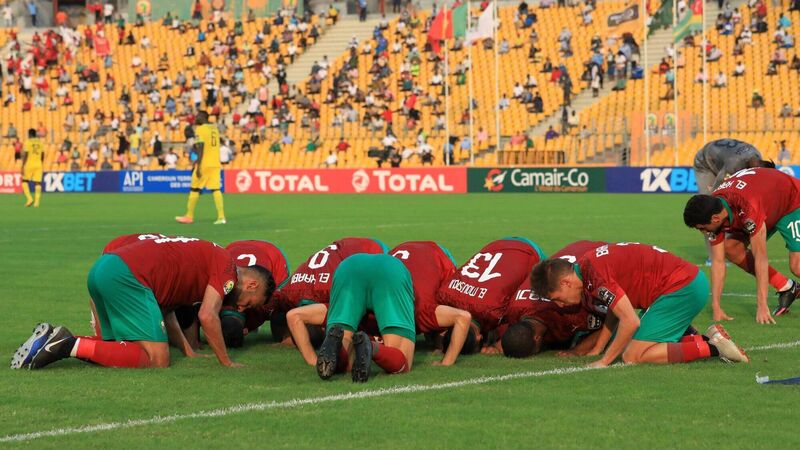Paul Rouse: The relationship between sport and religion both endures and evolves

UNITED IN FAITH: Morocco players pray after Yahya Jabrane scored the their first goal against Togo during an African Nations Championships game in Douala. Picture: Daniel Beloumou/AFP via Getty
One of the most interesting aspects of the world of modern sport is its intersection with religion.
This is something that has run across several centuries and is complex (to the point of being contradictory) in all manner of ways.









